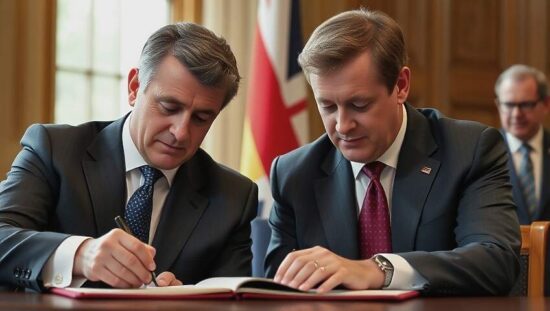German Chancellor Friedrich Merz and UK Prime Minister Keir Starmer formalized a long-anticipated agreement in London on Thursday, marking a renewed effort to strengthen ties between the two nations nearly six years after Brexit. The 27-page document outlines closer collaboration across a range of sectors including defense, trade and migration.
A cornerstone of the agreement is a commitment to deepened strategic security dialogues. Specific areas of focus include deterrence and defense, nuclear issues, arms control, non-proliferation, the prevention of chemical, biological, radiological and nuclear threats, space security, counter-terrorism and the broader international security architecture.
Beyond standard cooperation, the treaty incorporates a mutual assistance clause extending beyond existing NATO commitments. The parties reaffirm their dedication to mutual defense, pledging to support one another in the event of armed attack through military means if necessary. The document emphasizes the shared assessment that strategic threats to one nation represent a threat to the other.
The scope of the agreement is broad, also addressing practical initiatives such as facilitating direct rail connections between the two countries. Collaborative efforts are planned in fields like artificial intelligence and space exploration, alongside streamlining bilateral student and youth exchange programs.
Regular government consultations are mandated at the ministerial level, led by the respective heads of government, to be held every two years. These meetings will establish implementation plans for the following two-year period, alternating between Germany and the UK. Annual meetings of the foreign ministries will further monitor and assess the progress of the bilateral relationship.
The “Friendship Treaty” is now subject to ratification processes in both Germany and the United Kingdom.





